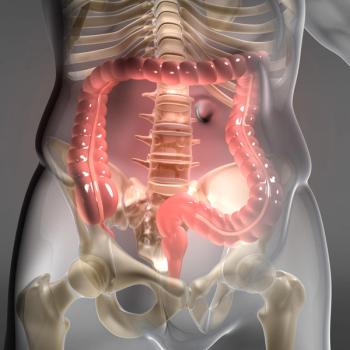
Phase 1 data may warrant further investigation of lunresertib in high-risk gastrointestinal tumors with CCNE1 amplifications or FBXW7 mutations.

Your AI-Trained Oncology Knowledge Connection!


Phase 1 data may warrant further investigation of lunresertib in high-risk gastrointestinal tumors with CCNE1 amplifications or FBXW7 mutations.

HRQOL data from the CheckMate 8HW trial may further support frontline nivolumab/ipilimumab for those with MSI-H or dMMR metastatic colorectal cancer.

The phase 3 RATIONALE 306 trial showed improved overall survival for patients receiving tislelizumab plus chemotherapy vs placebo and chemotherapy for unresectable, locally advanced or metastatic esophageal squamous cell carcinoma regardless of PD-L1 status.

Patients with previously treated HER2-positive metastatic colorectal cancer experienced durable responses following treatment with tucatinib in combination with trastuzumab.

Data from patients with gastric or gastroesophageal junction cancers who were treated with nivolumab showed that effects in the genomic pathways of the gut microbiome may be significantly associated with survival.

The combination of standard chemoradiotherapy plus avelumab demonstrated clinical activity while maintaining a tolerable safety profile for patients with locally advanced rectal cancer.

Data from a first-of-its-kind study indicated that unnecessary use of antibiotics may lead to early-onset colon cancer.

Findings from the OCTOPUS Consortium of trial data indicated that weight-based chemotherapy dosing may improve outcomes for obese patients with colorectal cancer.

Preliminary data from the phase 1b GO30103 study indicated that the combination of tiragolumab plus atezolizumab may have promise in patients with heavily pretreated metastatic esophageal cancer.

Results from the phase 3 KEYNOTE-811 study indicated that pembrolizumab and trastuzumab plus chemotherapy yielded robust, long-lasting responses in patients with HER2-positive metastatic gastric or gastroesophageal junction cancer.

Treatment with FOLFOX plus cetuximab resulted in improved PFS vs FOLFOX alone in patients with metastatic colorectal cancer with “all-RAS” wild-type tumors.

A subgroup analysis of the phase III RECOURSE trial has shown that TAS-102 is effective at improving survival in patients with both KRAS wild-type or mutant metastatic colorectal cancer.

Two phase III trials have confirmed the benefit of regorafenib, an oral multikinase inhibitor, in patients with previously treated metastatic colorectal cancer.

Adding the oral NK1 antagonist aprepitant to an oxaliplatin-based chemotherapy regimen effectively reduced nausea and vomiting in colorectal cancer patients.

A new study has found that in patients diagnosed with metastatic colorectal cancer, a low BMI could be a poor prognostic factor.

Ahead of the ESMO World Congress on Gastrointestinal Cancer, we are discussing the use of maintenance therapy in metastatic colorectal cancer with Axel Grothey, MD.